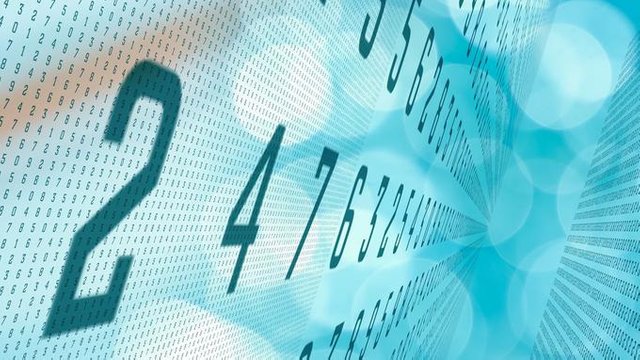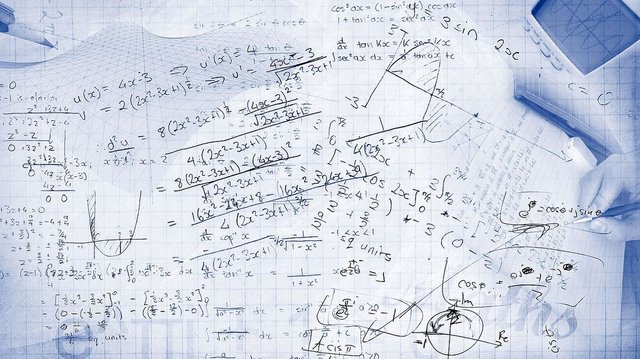, 3, 5, 7, 11, 13 ... This series of numbers, familiar, is the beginning of the infinite list of prime numbers, those integers divisible only by one and by themselves. The challenge is to find a prime number bigger than the previous one, again and again. And this December 27, 2017, Great Internet Prime Search Mersenne (GIMPS) announced the discovery of a new prime number: a number including 23,249,425 decimals ( decimal numbers, ie numbers in base 10) ,
The new prime number, also known as M74207281, is calculated by multiplying together 74,207,281 twos then subtracting one. It is almost 5 million digits larger than the previous record prime number, in a special class of extremely rare prime numbers known as Mersenne primes. It is only the 49th known Mersenne prime ever discovered, each increasingly difficult to find.
The GIMPS is a shared computing project, where volunteers search for prime numbers by sharing the computing power of their computers. The first to find this 50th prime number of Mersenne is Jonathan Pace, present for 14 years in this project. He received 3000 euros for this discovery.
Beyond their usefulness in cryptography, this "race" to the prime number also makes it possible to test computer hardware computers, especially in 2016, with the discovery of the fault of the latest skylake CPU.

Credit
This is the fiftieth prime number of Mersenne, named after the French monk and mathematician Marin Mersenne who had "invented" them in the 17th century. The previous record dates from 2016.
It is well known: an integer is said to be prime when it is divisible only by one and by itself (1, 2, 3, 5, 7, 11, 13, 17, 23, etc.). What is less so is that many thousands of mathematicians, amateur and professional, continue to search for ever larger prime numbers (Euclid demonstrated more than 2300 years ago that there was an infinity of ).
A new prime number consisting of an incredible 23 million digits was discovered on December 26, 2017, nearly a million more than the previous one announced in early 2016 . It would take a shelf of 40 books of 225 black pages of numbers to represent it (9000 pages)! It took a computer equipped with a fast chip (Intel i5-6600) to calculate this number and check that it was first (what is called a primality test).
The result was validated by the " Great Internet Mersenne Prime Search ", an association located in the United States, which since its creation in 1996, by a computer scientist trained at MIT (Massachusetts Institute of Technology), has set itself the task of calculating the largest possible prime numbers. GIMPS offers free online software to help individuals find large numbers on their computers.
Four different methods were used to confirm, on January 3 , the result proposed on December 26 by Jonathan Pace. The latter, a 51-year-old amateur working at FedEx, has been contributing to this unlikely research for fourteen years. It is therefore eligible, with the creators of free software, the $ 3,000 reward that rewards this discovery.
Fiftieth number of the Mersenne sequel
These volunteers are not looking at random. The prime number is, like its predecessors, in the form of a power of 2 diminished by 1 (2 is multiplied n times by itself, then we subtract 1 from the result). This number has the peculiarity of being the fiftieth element of the suite of Marin Mersenne, a French monk and mathematician (1588-1648) who had noticed that the numbers of the form (2 ^ n - 1) were often prime when n was himself first. In this case, the new record is held by the number obtained by multiplying 77.232.917 times the number 2 by itself, then subtracting 1.
Historically, the search for Mersenne numbers was used to test computers and programs (which adds a certain irony to the story when two security holes were updated on Intel microprocessors! ) . But these large prime numbers also had an interest in encrypting digital communications, in order to create security keys deemed inviolable. But last year, the first satellite communication, encrypted in a quantum way , may have made this race worthless to the prime number one. There is still the beauty of calculation!


Thanks for your post dear @benedicta
Downvoting a post can decrease pending rewards and make it less visible. Common reasons:
Submit
Thank you for reading
Downvoting a post can decrease pending rewards and make it less visible. Common reasons:
Submit